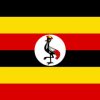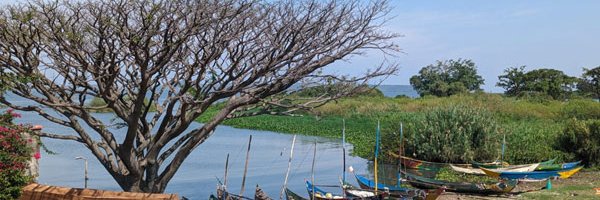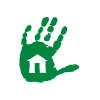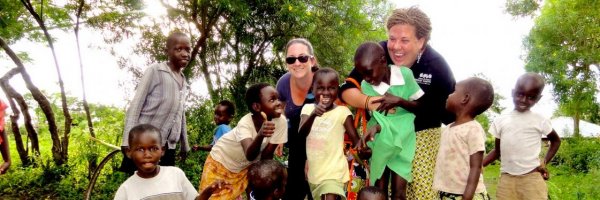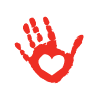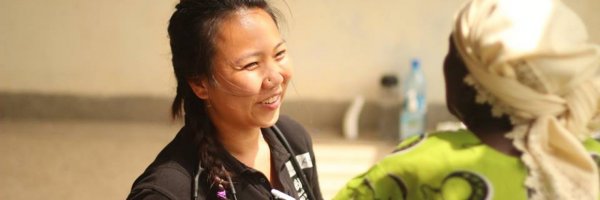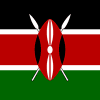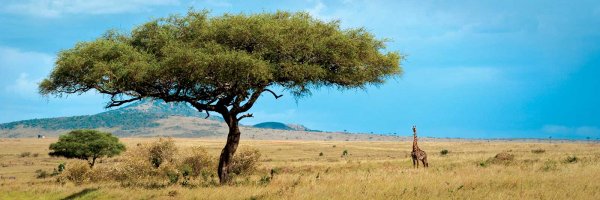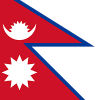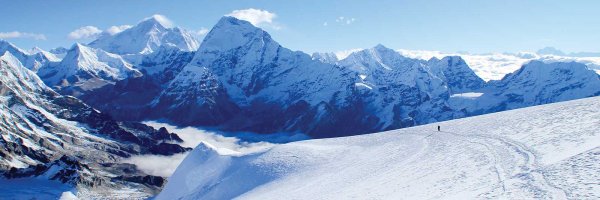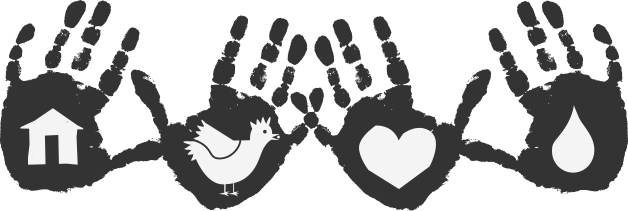Every year, World Humanitarian Day acknowledges and celebrates those who have committed their lives to helping others in the most extreme circumstances throughout the world. Our Nurses in Action Ambassador, Helen Zahos, is an Emergency Nurse and Paramedic who has volunteered in disaster areas around the world.
Helen grew up on Groote Eylandt, a remote Island in the Gulf of Carpentaria in the Northern Territory. She completed her Nursing and Paramedic studies in Darwin, where she was working in the Emergency Department and was involved with the Royal Darwin Hospital Response to the Bali Bombings. Helen has volunteered in Iraq in IDP Camps, in Nepal after the earthquake and Philippines after the Typhoon, as well as assisting during the Syrian refugee crisis on the border of Greece. She has worked in Emergency Departments in Tertiary hospitals; in Remote Indigenous Communities; attended Disaster Responses both locally and internationally, and worked with Asylum seekers and Refugees. Earlier this year Helen travelled to Kenya for the Nurses in Action Program and returned home to critical care nursing in an Intensive Care Unit in Brisbane just as the pandemic hit.
Helen is recognised internationally for her volunteer humanitarian work and has been nominated for multiple awards including Australian of the Year QLD 2016 and 2017.
“Helen is such an inspiration, empowering others in her field, and using her knowledge and skills to care for those who may not be cared for otherwise. Its an honour to have Helen represent World Youth International as our Nurses In Action Ambassador. She is a strong advocate of our mission and vision, and shares our aim to enhance quality of life, strengthen communities and reduce poverty through sustainable development projects,” said Terry Hoey, General Manager, World Youth International.
Learn more about Helen; her insights, and her experiences as a humanitarian nurse!
What is the most rewarding and most challenging aspects of humanitarian nursing?
There is something special about caring for someone who is at their most vulnerable, being able to comfort them, reassure them and knowing you are doing your best to deliver the best holistic care for that patient. I find it inspiring that nursing is not confined to a hospital setting, that you can provide nursing care in communities, in remote areas, even overseas in a remote village after an earthquake. It is really empowering as a nurse to be able to advocate for your patient, giving them a voice, and knowing you have made a difference to your patient's life. The biggest challenge to accept is the disparities in health care of developing countries compared to Australia.
You started 2020 with a trip to Kenya on the Nurses In Action Program. What did you learn on this trip? In celebration of Year of the Nurse, I marked the beginning of 2020 with a trip to Kenya on World Youth International’s Nurses In Action Volunteer Program. It opened my eyes like never before. I saw that we can empower the next generation of nurses by encouraging the sharing of skills and knowledge across cultures. By caring for some of the world’s most vulnerable people in Kenya, alongside Kenyan Nurses and Midwives, I learnt more than what I could physically give, particularly due to the lack of medical supplies, equipment and facilities. I often couldn’t escalate care due to the limitations of the available equipment, and this was heartbreaking, but also highlighted that we have a long way to go in achieving the United Nation’s ‘Sustainable Development Goal 3; ensuring healthy lives and promote well-being for all.
What was the day to day process for nurses? Most of my time in Kenya on the Nurses In Action program was spent at the Odede Community Health Centre, where we hosted sessions for the Centre’s permanent local nursing staff and community health workers, providing education on nutrition, diabetes and maternal health. This then empowered them to educate the Odede locals and encourage them to receive the care they needed at the Centre. According to World Health Organisation, the largest needs-based shortages of nurses and midwives are in South East Asia and Africa. Having the opportunity to work alongside Kenyan nurses and midwives, gaining insight and sharing skills has been invaluable to me. We also ran health camps within remote/rural villages. For example, we set up a healthcamp in a fishing village and treated people that would find it difficult to get to a primary health care facility. During these healthcamps we tested hundreds of people for malaria and HIV, and treated them. We conducted observations on everyone and assessed them as they came through the health camp, we had testing stations and a pharmacy set up, and an area for dressings to be changed.
What was the most memorable experience from the program that you will cherish forever?
Delivering a baby was exciting because I really had a good rapport with the lady in labour and I supported her for some time. When the baby arrived, a little girl, she named the baby after me. It was such a special moment and I was relieved it all went smoothly. I was amazed at the resilience of the woman and also what little equipment there was available. There are so many little stories like this that I will cherish; it’s the people that you remember, their warm nature and their big smiles. You really know you have made a difference to someone and it is so rewarding.
What was the most challenging experience during your program in Kenya?
It was very difficult seeing the incorrect treatment being administered and wanting to assist. I treated a 3 month old baby with 60% full thickness burns, which was very confronting. I had the opportunity to advocate for her, educate the nurses on current treatment for burns and was able to hold educational sessions to educate the doctors and nurses on burns treatment. Education is a big part of nursing, through health promotion, by teaching colleagues best practice guidelines, by teaching patients on their condition and explaining treatment. Through education we can empower.
How did your experience on the Nurses In Action program compare to previous volunteering placements?
I have been on a number or volunteer missions where I have had little warning and attended disaster areas like the Nepal earthquake, Philippines post typhoon hyan, Iraq outside Mosul during the conflict, and the refugee crisis. These were often in unpredictable unstable environments, in tent accommodation. The refugee crisis was a slow moving disaster that unfolded over a period of time that overwhelmed specific countries that could not cope with the influx of people and it exceeded the capabilities of existing resources and infrastructure. The refugees were on the move and fleeing conflict, they were not living in homes; they were in refugee camps and they were traumatised. I needed to support with healthcare issues including chronic conditions but also emotional trauma.
The Nurses In Action program in Kenya was different because it is in a developing country where poverty exists across the board. Deeply seeded systemic issues in health care means that people have a lack of access to medical facilities or they cannot afford to seek treatment. There are endemic diseases such as Malaria and HIV affecting people on a large scale, with limited funding or resources available. On a more personal level, the program was much more organized than my previous placements; I had booked it in advance, stayed in a house, there were showers with running water and the area was safe. I felt safe.
Would you recommend volunteering abroad to other Australian nurses? Yes - volunteering feeds your soul. Giving to others, treating vulnerable people - it is so humbling but also it’s a reality check as we realise how good we really have it in Australia, and that it is by sheer chance that we are born here into this life and not in a developing country or an area experiencing conflict. When we volunteer, we grow and develop by learning new skills and adapting to sometimes uncomfortable situations that are outside of our everyday lives. Every humanitarian volunteer placement is an experience and is considered not just admirable from a philanthropic sense but also from a professional sense. If you are able to volunteer in a developing country it shows character, capability, resilience and motivation. These attributes stand out on a CV. Once we realise the many benefits of volunteering, we can also find it’s an activity which can quickly become addictive. Helping others at home or abroad improves our lives as much as theirs, and finding meaningful work to do while travelling the world is a true privilege.
What advice do you have for Australian nurses who are thinking about moving into humanitarian nursing more broadly? Choose the organisation that you are going to go with carefully, and ensure you have had the right training for where you are going and what type of deployment you will be going on. Make sure you have your immunisations up to date for the countries you are going to and also the medication you might need like anti-malarial tablets. Be prepared and take everything you will need to be mostly self-sufficient if the area or deployment requires it. Watch my TED Talk "Creating Change Through Volunteering: Lessons from a Humanitarian Nurse" for more insights!
What does the International Year of the Nurse and the Midwife mean to you? International Year of the Nurse means a lot to me; I was there when they announced it at the World Health Assembly in Geneva. I remember feeling really proud to be a Nurse and felt we were being recognized for the work that we do. In February, I was in Kenya watching what was happening in China and honestly did not expect covid-19 to affect the globe the way it has. As the pandemic continues to impact the globe, there are many communities who will not be able to recover without the help of humanitarian nurses/volunteers. Disasters such as this affect us all; but those living in poverty are always the most vulnerable as it makes it even harder for them to break the cycle. My role now is to stay at home on the Gold Coast and to work where my skills are needed, doing what I love. I never imagined that the Year of the Nurse would take on such a different meaning, and that we would need to unite and become stronger than ever.
~
Thank you to Helen, and the thousands of health professionals worldwide who engage in humanitarian work to provide help where its most needed, in particular our past, present and future Nurses In Action volunteers.
If you’re passionate about supporting others and want to plan future trips, particularly when some of the communities we work within will need more support than ever while the world is recovering, consider signing up in advance to the Nurses in Action Program.
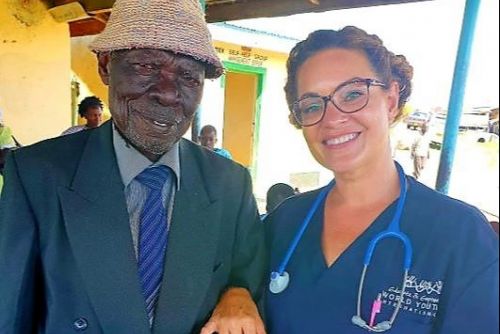
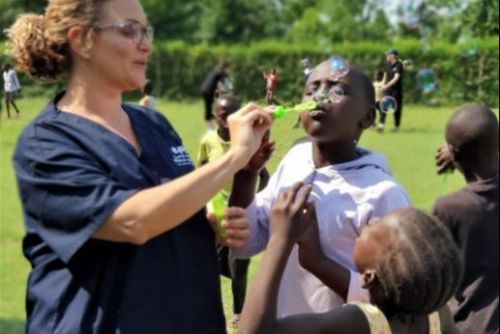
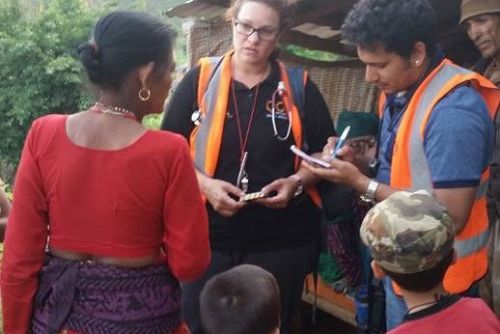
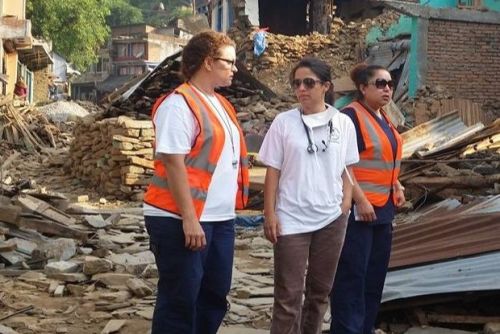
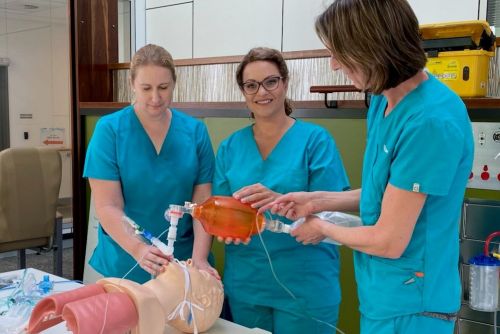
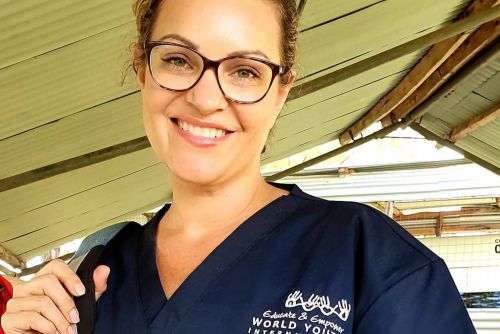
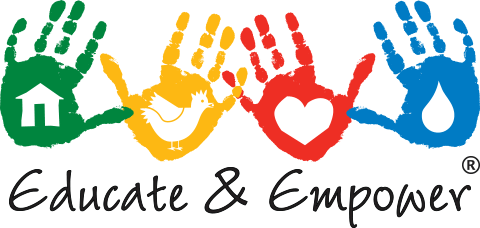 World Youth
World Youth
